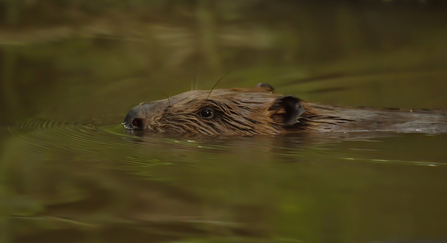Hampshire & Isle of Wight Wildlife Trust are celebrating as beavers are now officially recognised as a native species in England and a European protected species.
The new law, which came into force at midnight last night (October 1), is good news for this extraordinary mammal.
Beavers are key to creating thriving wetland ecosystems – which are critical for climate adaptation – and provide a wealth of benefits for nature and people.
The change in legal status will make it an offence to deliberately capture, kill, disturb, or injure beavers, or damage their breeding sites or resting places – without holding the appropriate license.
Izzie Tween, beaver recovery project officer at Hampshire & Isle of Wight Wildlife Trust, said: “We’re delighted that beavers have received European native species protected status.
“This new legislation gives the beavers already thriving in England recognition as native animals, a status they have held in Scotland since 2019, and will bring their level of protection in England into line with those north of the border.
“While any unwelcome beaver activity can still be managed under Natural England licencing, this protection will help our small and vulnerable population of this industrious ecosystem engineer to establish and create wetlands to help boost biodiversity and deliver ecosystem services for local communities.”

